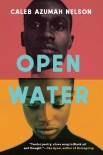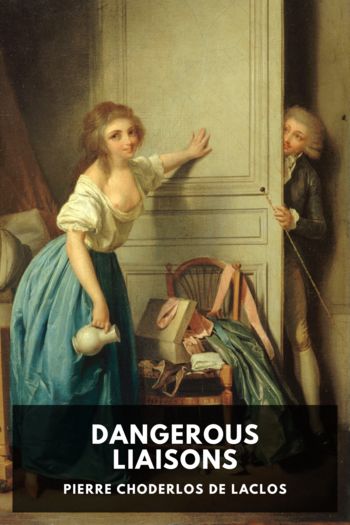Open Water, Caleb Nelson [best summer books txt] 📗

- Author: Caleb Nelson
Book online «Open Water, Caleb Nelson [best summer books txt] 📗». Author Caleb Nelson
It’s summer now. You’re outside, wearing shorts and a sleeveless jersey, and still sweat pours from your own pores. Through the solid wall of sound – from indoors, you’ve turned The Low End Theory on, loud – her voice drifts towards you. Your brother must have let her into the house – your parents are away once more, on a holiday back home this time, which makes the equation of you and her easier, without the pressure of an introduction. She comes from the house, into the garden, on the phone, smiling, listening as she does so well. She kisses you on the top of your head, and settles in the seat opposite you, pulling her culottes up past her knees.
‘Hot,’ she mouths.
You head into the kitchen and pour her a glass of water that’s mostly ice. She’s finishing up the phone call when you return.
‘Hello, friend.’
‘What’s going on?’ you say, setting the glass beside your own.
‘Oh, nothing.’ She raises her arms. ‘It’s summer now.’
‘It is, indeed.’
It’s summer now, so as you did in Seville before you met her, you spend the afternoon together outside, eating, drinking, before taking refuge in the house.
‘I need to nap,’ she says, the heat robbing her of the desire to do anything. The heat making you both slow, so slow you can hear each other, you can hear your prayers.
Your room has changed slightly since she was last here. You cleared most of the towers of books from your desk, now only a mountain on the left side of what you’ve read most recently, what you hope to read soon. There’s a stack of records on the floor too; you have been trying your hand at sampling from vinyl, listening carefully for snatches of sound you can layer over each other to form new rhythms.
She sprawls out on your bed, atop the covers, then sits up suddenly to remove the large gold hoops swinging from her ears. You lie beside her, settle into a familiar position. The break since this last happened has made no difference. You fit, like this is an everyday. The only difference here is sunshine filtering through your light curtains. This is a daydream rather than a night-time reverie.
She pulls your arm close, tucking it towards her chest; you shift your hips closer, your chest pressed against her back. Her breathing quickens.
‘You good?’
‘I just had a weird moment,’ she says, muffled, ‘where I realized, if you wanted you could kill me in my sleep.’ You cannot help but laugh.
‘Not funny,’ her voice trailing away.
‘Don’t worry. You’re safe here.’
It’s summer now, so you can sit on her balcony, drinking wine, sipping slow. You’ve hopped around London all day, going from your house, to the National Theatre on the Southbank, walking along the river as it lapped against its borders. You’re back at her house now, talking into the night. You’re talking about art and expression and suppression, and this is when you bring up the film Moonlight. You saw it first at a free screening in east London, and were struck by how a mood could be expressed through colour, the vivid palette Liberty City offers providing the backdrop for a story you began to increasingly feel in your chest. Blues and pinks and purples. When you left the cinema, you could not speak. When you rode the train home, you could not speak. You walked home, straight to your room. Silent tears fell like soft rainfall. You saw yourself in each version of Chiron. You saw yourself in the muting and erasure of his various expressions through the film. You saw yourself crumpling small to fit. You saw yourself when Juan says to Chiron: Give me your head . . . let your head rest in my hands . . . I got you, I promise you. You feel that right there? You in the middle of the world, man.
In the ebb and flow of the water, Chiron floats, then thrashes about with the support of his surrogate guardian. When the time comes, Juan lets him go; Chiron, head above the surface, eyes closed, mouth wide with the effort, swims, scooping water with each clumsy stroke. Juan’s eager laughter fills your ears. He’s doing it. Chiron is swimming. You felt bass slap thud, like a heartbeat, where Jidenna’s ‘Classic Man’ is chopped and screwed, the phrases of music slowed, slow, slow, elongated vocals, lower frequencies, in your chest, it’s in your chest. In the final scene, Chiron splits open like fresh fruit, tears running down his flesh.
Who is you?
I’m me, man. I ain’t trying to be nothing else.
You were in your room, after the screening, sobbing silent, soft gasps, not because it pained you but because there was hope yet.
It’s summer now. As she swirls her wine in her glass, she asks, ‘Can you read to me? It’s been a while since you read to me.’
The last piece you had read to her was about the previous summer, 2017, when you saw what happened when anger finally finds an escape, like a creeping wave finding form and crashing to shore. You began to write because photos have their own language, and sometimes, the images you make become flimsy in comparison to what you can feel. Sometimes, even this language fails. So you wrote your thoughts down, hoping to structure a narrative around the conflict bubbling inside you. You wish it were as straightforward as a random act of violence, but it was not. It was not that simple.
Let’s home in for a moment, on the boy, who you glimpsed sitting on the wall, cuffed, surrounded by police officers. With his





Comments (0)